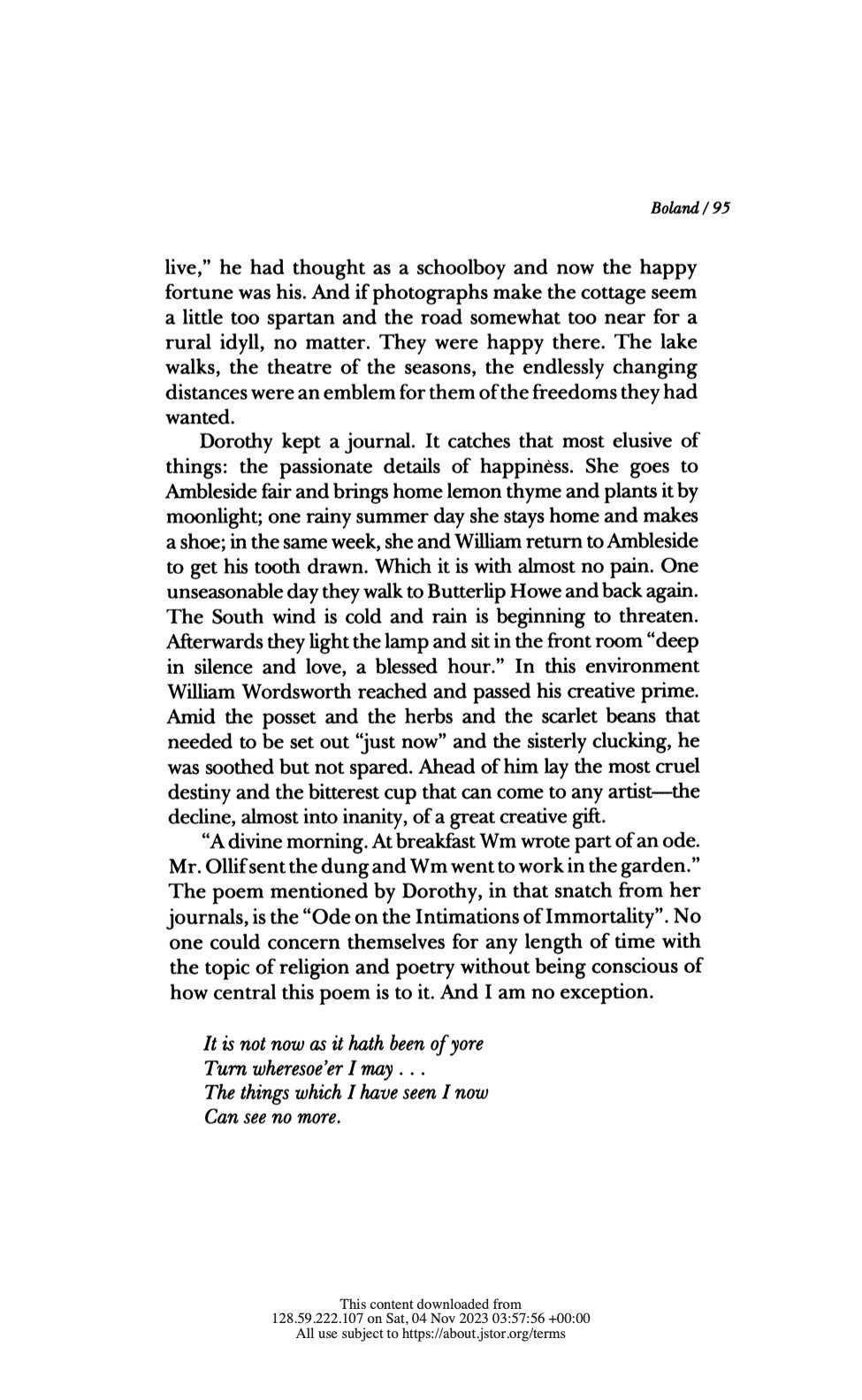From the Archive: Eavan Boland “On Religion and Poetry”
By Alex Wexelman
Photograph of Eavan Boland
As we are bombarded with images of war, violence, genocide, etc, I am loath to recall the oft quoted Theodor Adorno who said that, “To write poetry after Auschwitz is barbaric.” Never mind that he retracted this statement, its sentiment still stands. How does one write poetry after the bombing of a refugee camp? What am I, you, what are we, doing tucked into our tidy MFAs, jobs, lives while atrocity occurs? Well, personally, I’ve always found this line of inquiry to be a sophism. Why can’t we protest through poetry? Why is the power of art rendered inadequate despite the fact that writers of the past (Cicero, More, Mandelstam, and Babel) were executed as heretics or enemies of the state? Those in power clearly believe in the rousing ability of poetry, so why do those who aren’t often disagree? Perhaps, we don’t have to agree that poetry can afflict the comfortable. But what about its ability to comfort the afflicted?
In 1982, Eavan Boland wrote an essay titled “On Religion and Poetry” for The Furrow, a monthly journal for the contemporary Church. Eleven years later, The Columbia Journal reprinted the tract in its No. 18/19 issue. Leave it to an Irish poet to explore the connection between her vocation and divinity. (Boland, two years after the Columbia Journal reprinted this essay in 1993, would write in an essay for The New York Review of Books about a wave of hysteria in which the Irish public convinced itself stone Virgin Mary statues were, in fact, moving. For the record, Boland is dubious that the statues moved, but not entirely convinced they didn’t either.) Boland has a similarly ambivalent take on poetry and religion: "I am really uneasy - and not getting less so - about the privileges claimed by the poet and some of those powers traditionally arrogated to poetry,” she writes. Yet, she also claims that, “I am sure that a reader who really goes with a good poem and allows it into his life, will get up from reading it with a sense of healing.” Read Boland, even if you, like me, are but a Hebrew school drop-out, because her wisdom points to a truth, and I’ll let her have the last word on this: “The poignancy of good poetry has everything to do with the extent to which it can balance on its own paradox: even as it gives the most obvious witness to the truth that man is not perfect, it suggests through its the possibility that he might once have been and—through its offices—might momentarily be again.”











